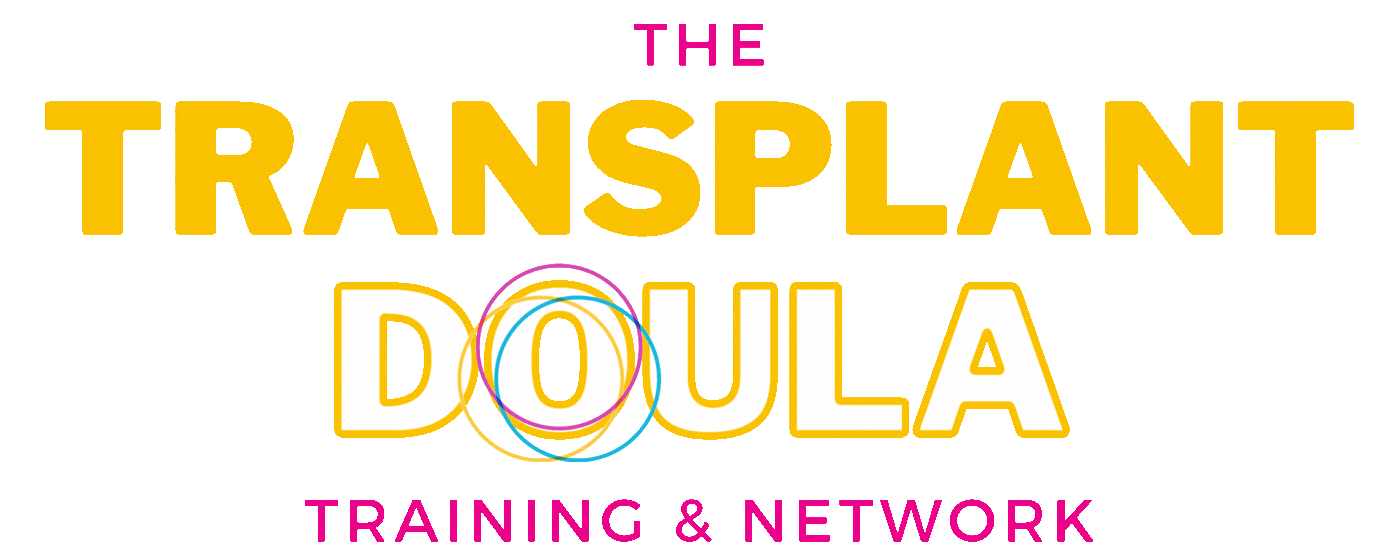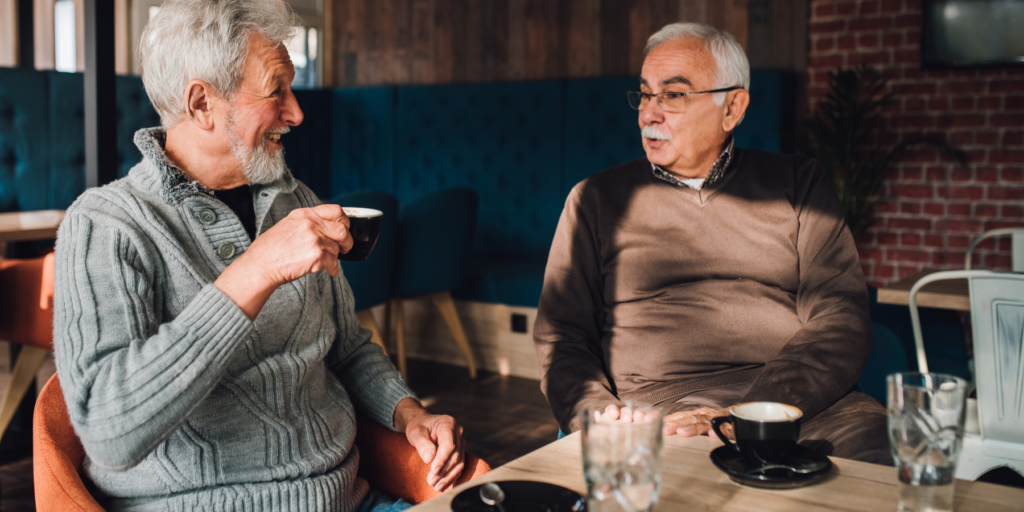
Finding the Right Support Through Your Transplant Journey: A Comprehensive Guide
Although the transplant journey is universal, the experience is exceptionally unique to the patient. Even with the support and guidance of competent transplant teams and other healthcare professionals, most people feel overwhelmed by the process; they are likely to rub up against the constraints of the available resources and experience gaps in the transplant care continuum.
To address these concerns, The Transplant Doula™ looks to bridge those gaps through non-medical support services offered by capable practitioners…
Transplant doulas.
What Is a Transplant Doula?
How do transplant doulas support the transplant journey?
The transplant journey is universal and yet so very unique to the person navigating it. Because of this, there are gaps that pop up along the care continuum. Transplant doulas are actively bridging those gaps by offering holistic, non-medical support before, during, and/or after transplantation.
Here’s a non-exhaustive list of how transplant doulas support transplant patients.
Education about the Transplant Journey
Providing comprehensive information about the transplant process to help prepare patients and living organ donors for anticipated life changes.
Emotional, Social, and Spiritual Support
Providing emotional, social, and spiritual support to individuals undergoing transplantation, their caregivers, and immediate care circle.
Non-Medical Comfort Measures
Offering non-medical comfort measures such as stress reduction techniques, music therapy, aromatherapy, and healing touch to alleviate anxiety.
Immediate Problem-Solving Assistance
Offering urgent support and solutions when unexpected issues arise during the transplant process.
Respite and Companionship
Providing respite care, companionship, and sitting vigil during challenging moments of the transplant journey.
Creating Meaningful Rituals and Ceremonies
Assisting in creating rituals or ceremonies that honor the transplant journey at various stages.
Advance Care Planning Guidance
Assisting patients and donors in navigating complex paperwork, including power of attorney for healthcare, living wills, and organizing life affairs.
End-of-Life Planning Support
Offering guidance in exploring feelings around mortality and death, the risks associated with their illness/surgery/etc., and handling paperwork for final wishes.
Life Review and Legacy Work
Encouraging reflection and legacy work for patients and donors, creating a meaningful narrative of their transplant journey.
Logistical Support
Assisting with the planning of logistical matters like organizing information, establishing routines, supporting the organization of care, transportation, and other household tasks.
Assistance with Non-Medical Errands
Supporting various non-medical tasks and errands, within the constraints of appropriate involvement (ie: nothing they haven’t received appropriate training for).
Communication Facilitation
Supporting communication between individuals and care teams/circles to ensure needs, wants, boundaries, and expectations are understood and honored throughout the transplant journey.
Advocacy and Mediation
Advocating for patients and donors to uphold their preferences and rights while mediating/addressing conflicts kindly and clearly when necessary.
Guidance in the Healthcare System
Offering guidance/insight to the transplant system, choosing and working with transplant teams, gathering/coordinating community resources…and more.
PROFESSIONAL TRAINING
How does someone become a transplant doula?
The term “transplant doula” is brand new—coined by Michelle, founder of The Transplant Doula™ in 2023. The concept is simple: we apply the doula model of care to the experience navigated by transplant patients, organ failure patients, living organ donors, and chronic illness patients.
So how does one become a transplant doula? They may be trained through The Transplant Doula™, or they may be self-taught. The benefit of doulas going through a structured training program is a well-rounded education, as well as an expectation to meet and follow standards of support. The profession itself is unregulated, and professional transplant doulas are not currently eligible for licensure or credentialing by a governmental, third-party, or academic agency or board. But those who do choose to get training often use “certified transplant doula” to qualify themselves.
PLANNING YOUR SUPPORT
How much does it cost to hire a transplant doula?
There are no standardized fee schedules or structures for transplant doulas, as they vary greatly depending on the offering. Fees can be based on a package of services, by the hour, or by task. Currently, at least in the United States, Medicare and other insurance programs do not provide reimbursement. Therefore, any remuneration is usually done out of pocket as private pay. Doulas often require that some part of the fee be paid upfront as a non-refundable retainer. Although transplant doulas work independently, it’s possible that programs may begin to pop up through transplant centers and other community organizations where doulas may be volunteers, independent contractors, or employees who abide by approved standards and procedures set by each organization.
If you’re looking for free resources, you’re encouraged to explore other programs like transplant mentors and group support systems.
PLANNING YOUR SUPPORT, CONTINUED
Things to consider when choosing a transplant doula.
Before you start looking for a transplant doula, it helps to do some upfront research and reflection so that you know what options are available to you, and are best suited for your particular circumstances.
Understanding your motivations—specifically, how, when, where, and why you require support—is vital. Even if you are in urgent need, investing time and effort into this process enables you to find a doula whose personality, beliefs, and caregiving style align with yours. It might be more beneficial to choose an inexperienced doula with whom you share a warm connection rather than opting for a highly experienced one with whom you struggle to communicate effectively. Ultimately, prioritize hiring someone who can offer unbiased and empathetic support to you and your family. Trust your instincts.
1. Identify your needs and desires for transplant or living organ donation support.
Review the list of the services provided above and note those you think will be most helpful to you in your own particular situation.
2. Consider factors impacting your relationship with a Transplant Doula.
When seeking the support of a transplant doula, it’s essential to consider several factors that will shape the nature of your relationship with them. Considering these factors will help you find a transplant doula who not only possesses the necessary skills and expertise but also resonates with your personal preferences and values, ensuring a more effective and meaningful partnership during this transformative experience.
These considerations include:
Communication, Language, and Approach: Reflect on your communication and approach preferences and what would feel most comfortable for you. For example..Do you value open and direct communication, or do you prefer a more empathetic and nurturing approach? Do you practice a certain level of self-awareness and want a doula that can support that language?
Remote vs. In-Person Support: Determine whether you are comfortable working with a transplant doula remotely, such as through video calls or phone conversations, or if you strongly prefer in-person support. Understanding your preference in this regard will help narrow your search to local or beyond.
Cultural Background: Consider whether you would like your transplant doula to share a similar cultural background. Factors such as race, faith, ethnicity, and cultural traditions can play a significant role in providing culturally sensitive support. Decide whether this alignment is essential for you and your family during this journey.
Expectations for Outcomes: Be clear about your true expectations for the outcomes of your transplant journey. Are you seeking primarily emotional support and comfort, or do you have specific goals and desired outcomes related to the transplant process? Communicate your expectations openly to ensure that your chosen doula can align their support with your objectives.
3. Explore our doula directory and perform an initial round of research.
You’ll want to explore your options thoroughly. Refer to the interview questions below and try to gather as much of that information upfront as possible, so that you can use your first discovery call to gather more in-depth information.
4. THOROUGHLY VET THE DOULA YOU ARE CONSIDERING.
The following questions/considerations can be used to help you assess whether a transplant doula is the right fit for your needs and preferences during your transplant journey or living organ donation experience. Usually, the majority of these questions can be found on the doula’s website or through a client deck sent to you upon your request. You want to be sure that you feel seen, heard, respected, and supported from the moment you first connect with the right transplant doula.
QUESTIONS ON THE TRANSPLANT DOULA ROLE
- How do you describe your work, and what specific services do you offer?
- Can you explain your style, approach, and process?
- What are your core values and beliefs as a doula?
QUESTIONS ON BACKGROUND & EXPERIENCE
- What motivated you to become a transplant doula, and how did you start in this field?
- How many years of experience do you have, and what is your educational or professional background?
- How many clients have you served, and how many transplant journeys have you been a part of?
- What is your main focus or area of expertise, and what guiding philosophy shapes your care?
QUESTIONS ON SERVICE AREA AND AVAILABILITY
- What is the geographical area you cover?
- What is your availability to me?
- Are you available 24 hours a day, and what backup plans do you have if you’re unavailable?
QUESTIONS ON FEES AND PAYMENT
- What is your fee structure?
- Are there additional fees that may be incurred?
- How do you prefer to be paid?
- Do you offer a sliding scale?
- What does your formal agreement for your services include?
QUESTIONS ON SECURITY
- Do you carry liability insurance to protect both you and your clients?
- How do you handle potential conflicts?
- How is confidentiality maintained?
QUESTIONS ON CLIENT EXPECTATIONS
- As a client, what would you expect from me during our partnership?
- How do you envision us working together effectively based on my current situation?
- What happens if our working relationship isn’t ideal for either of us or if you can’t fulfill our needs?
QUESTIONS ON COMMUNITY INVOLVEMENT
- What is your knowledge of, and relationship with, transplant leaders and other care providers in our community?
- Do you work collaboratively with other professionals or organizations?
- What are your thoughts on the current transplant programs in our community?
- Do you actively participate in organ donation awareness (or other important matters)?
REMINDER
Gather information and trust your intuition.
Selecting the right transplant doula is a pivotal decision that can greatly impact your transplant journey or living organ donation experience. By understanding the role of a transplant doula, identifying your needs and preferences, compiling a list of questions, researching, interviewing, assessing compatibility, and clarifying fees and agreements, you can make an informed choice that ensures you receive the support you deserve during this monumental transplant journey.
Just remember: you do not need a doula to successfully navigate your experience. But if having someone in your corner will feel supportive to you, then a transplant doula may be a great option to explore.


